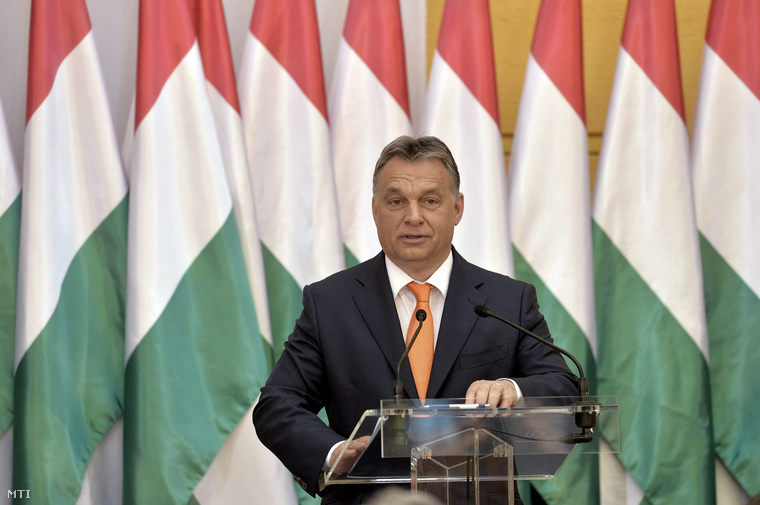An already strained relationship between Hungary and Brussels suffered yet another major blow on Sunday, as more than 98% of Hungarian voters voiced their opposition of Hungarian voters voiced their opposition to the EU’s plans for the mandatory resettlement of “refugees” (read: third-world invaders) in their country.
In Sunday’s referendum, Hungarian voters were asked the following question:
Do you want to allow the European Union to mandate the resettlement of non-Hungarian citizens to Hungary without the approval of the National Assembly?
Signifying how much the issue of national sovereignty weighed in Sunday’s vote, the referendum has been described by some as a “Brussels or Budapest” vote. The core issue on Sunday, therefore, was one of nationalism versus globalism, essentially of kinism versus alienism. One journalist described the sentiment in Hungary on the day of the referendum as such:
What voters were telling me is that this is a Christian country here and they want it undiluted by immigrants, and that they want to preserve the Hungarian culture.
Thankfully, the Hungarian people overwhelmingly made the wise decision.
In the aftermath of such a landslide victory for the right, the mainstream media predictably chose to focus on a technicality by which the referendum may be declared invalid – a total voter turnout of under 50%. As expected, the leftist minority in Hungary knew that they had no change of an outright victory, so their strategy was to stay home. As a personal friend of mine pointed out, however, it is quite absurd that referendum victories by a margin of 51% can be considered valid if voter turnout just reaches 50%, while a 98% referendum victory is declared invalid on the back of a 44% voter turnout.
Nonetheless, the good news is that the right-wing Hungarian government, under the leadership of Calvinist Prime Minister Viktor Orban, has noted that, despite the low turnout, they recognize the victory and will move forward accordingly. Given that the sovereignty of the Hungarian people over Brussels-globalists was at the very heart of the referendum, this is a very significant – and hopefully decisive – statement from the Orban government.
On a larger geopolitical scale, this landmark vote signifies an intensification of an ever-increasing divide between more traditionalist, Christian, and homogeneous Central and Eastern European nations and the historically dominant but increasingly multicultural Western European nations. In Poland, one of the last bastions of European Christianity, Orban was recently selected as ‘man of the year’. Like the Hungarians, the Polish and other Eastern European nations have been at the forefront of the battle against the current invasion and displacement of ethnic European nations, while countries like Sweden and Germany have seen their governments openly work towards their national destruction with policies Orban has rightly shunned as “self-destructive”.
Hungary’s future has previously been described here at Faith and Heritage as “solidly right-wing”. The joy of this referendum result lies particularly in the long-term effect it may have in further solidifying Hungary’s turn towards the right for its present and future policy-making.
| Tweet |
|
|
|





